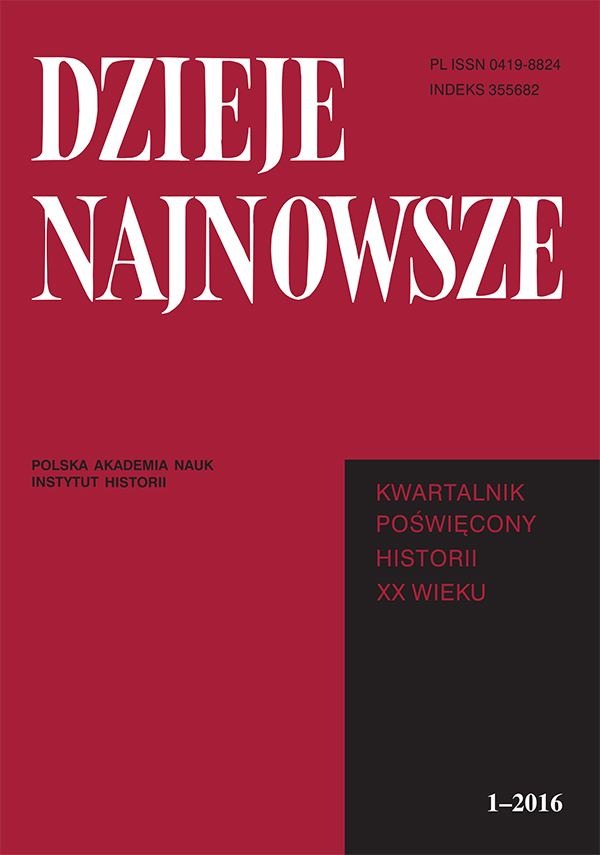„Poena sine lege” — czyny chuligańskie w orzecznictwie Komisji Specjalnej do Walki z Nadużyciami i Szkodnictwem Gospodarczym (1951–1954)
„Poena sine lege” — Hooligan Misdemeanours in the Adjudication of the Special Commission to Combat Embezzlement and Economic Sabotage (1951–1954)
Author(s): Andrzej ZaćmińskiSubject(s): History, Political history, Social history, Recent History (1900 till today), Post-War period (1950 - 1989)
Published by: Instytut Historii im. Tadeusza Manteuffla Polskiej Akademii Nauk
Keywords: Special Committee for Fight against Fraud and Economic Malpractice; hooliganism; justice system; People's Poland 1944-1956;
Summary/Abstract: At the turn of the 1940s daily life in Stalinist Poland disclosed a growing phenomenon known as hooliganism, reflected in the press propaganda and statements made by politicians and lawyers. In November 1951 this topic became omnipresent in public discourse and the activity of the administration of justice. The article intends to present the adjudication of the Special Commission to Combat Embezzlement and Economic Sabotage, pertaining to misdeeds regarded as hooliganism. In view of the fact that in the 1949–1955 period both propaganda and the adjudication of the administration of justice applied the term: ”hooliganism” in a wholly arbitrary manner by using general criteria, it became necessary to depict its interdisciplinary systemic dimension as well as the propaganda, political, and legal struggle waged against it. The above–mentioned methodological and factual operation was indispensable since without its analysis it would be difficult to describe the mechanisms of the penalisation of hooliganism by the Special Commission, which in 1951–1954 sentenced for this “crime” 10 684 persons to labour camps, and fined 1 580 perpetrators. The Special Commission adjudication concerning hooliganism encompassed an extensive gamut of conduct (misdemeanours) treated not only in legal categories but also in social and political ones. Their classification was determined by the context of the committed ”crime” or misdemeanour. The adjudication praxis of the Special Commission demonstrates that incriminated hooliganism could be divided according to an adjective criterion into: “political”, “social” and “class”, i.e. crimes against life, health and property.
Journal: Dzieje Najnowsze
- Issue Year: 48/2016
- Issue No: 1
- Page Range: 83-112
- Page Count: 30
- Language: Polish

